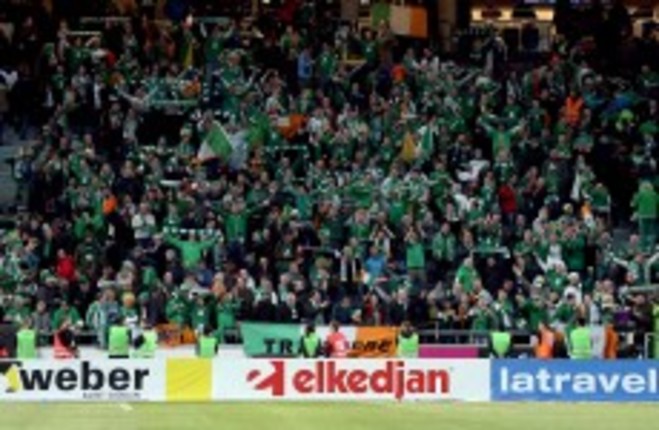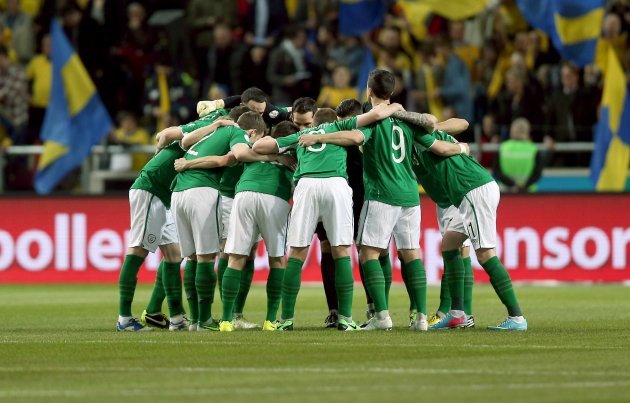FOR A GAME that had somewhat justifiably been seen as the potential end to the Giovanni Trapattoni era, Ireland’s impressive 0-0 draw may go a long way to ushering in a new beginning for both the team and the manager.
Because, although it may have ended in that most quintessentially Irish of away results – the proud draw – it was achieved through a very different method than usual.
A visible signal of the new departure came as the fourth official put his board up on 77 minutes.
At such stages in the past, Trapattoni has often made somewhat surprising substitutions in seeking to hold ground and consolidate the result. Generally, it has combined with a massive retreat back that has run a greater risk of giving up goals rather than just possession.
This time, though, the Italian made what must be considered one of the most proactive moves of his tenure. He brought the intriguing — and popular — Wes Hoolahan on for Robbie Keane and changed the dynamic of the game as well as the team.
Moreover, rather than try and keep steady at the edge of their box, Ireland were actively looking to keep the ball. It further illustrated a transformation that seems to have taken place right across the team.
When Trapattoni first took over the side, after all, it made sense to implement a defence-based side given that most of the squad’s most forceful players, such as Richard Dunne, played at the back. The humiliations of Euro 2012 and Germany, in fact, coincided with a core that was no longer so capable of such rearguard resilience.
Given Trapattoni’s reluctance to bring through newer players that looked more and more ready, there were then rightful questions over whether he was the right man to oversee the introduction of a new generation. In Sweden, however, Trapattoni deserved credit for the manner in which so many young players demanded responsibility and also made use.
Forward thinking
From the front, Shane Long very quickly put Sweden on the back foot with a barging run. Indeed, the only criticism you could really have of Ireland’s performance beyond the odd loose pass was with the finishing.
Because, behind the front two, the team also took an impressively proactive approach to causing Sweden problems. In the first 20 minutes, in particular, Ireland produced some of their most pleasing football for some time. Although James McCarthy did play two poor balls early on, they were at odds with a performance that was assured and authoritative. Paul Green, meanwhile, hassled and harried as well as Seamus Coleman introduced the energy many expected.
James McClean offered a shift that was in stark contrast to his stuttering club form and Marc Wilson was a model of composure. Indeed, in contrast to the long passes of the past under Trapattoni, many of the side’s best moves began with the Stoke defender’s easy control.
Pic: Inpho/ Donall Farmer
Behind them all, then, David Forde pulled off the kind of important saves that will ensure people won’t so readily talk about the old Shay Given or the fact the new number-one is at a Championship club. Most importantly, all of that came together to ensure the single most talented individual on the pitch was kept unusually quiet. To be frank, Zlatan Ibrahimovic was only ever on the periphery of the game.
The result, though, has ensured that Ireland are most certainly not on the periphery of the group. And the hope, now, is not just that they keep it in terms of results against Austria on Tuesday – but that they do the same as regards this more rousing approach.


